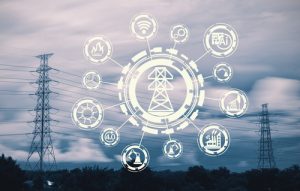
U.S. House Energy and Commerce (E&C) Committee Republican members U.S. Reps. Greg Walden (R-OR), Fred Upton (R-MI), and John Shimkus (R-IL) on June 30 unveiled several bills to bolster America’s energy independence and modernize the nation’s energy infrastructure.
“We are proud to lead this effort with our Republican colleagues to support the hardworking men and women of the U.S. energy sector, expand access to clean energy, promote nuclear innovation, protect natural gas resources, and strengthen North American energy security,” the representatives said in a joint statement released by the committee.
Rep. Walden is ranking member of the House E&C Committee while Rep. Upton is ranking member of the committee’s Energy Subcommittee, and Rep. Shimkus is ranking member of the E&C Environment and Climate Change Subcommittee.
“U.S. energy independence is vital for a prosperous economy and for our national security,” said the lawmakers. “The need to ensure we have the resources to power our lives, from the fuel in our cars to the electricity in our homes, has been underscored during the COVID-19 pandemic.”
According to the E&C Committee, Republican members introduced eight bills:
- The Promoting Cross-border Energy Infrastructure Act, sponsored by U.S. Rep. Markwayne Mullin (R-OK), which would remove regulatory barriers to permitting cross-border pipelines and electricity transmission;
- The Strengthening American Nuclear Competitiveness Act, sponsored by U.S. Rep. Bill Johnson (R-OH), which would expedite the federal review of certain nuclear technology exports;
- The Promoting Interagency Coordination for Review of Natural Gas Pipelines Act, led by U.S. Rep. Bill Flores (R-TX), which would streamline the natural gas pipeline permitting process at the Federal Energy Regulatory Commission (FERC);
- The Methane Emissions Reduction Act, led by Rep. Upton, to enable the U.S. Department of Energy to assist states in reducing methane emissions from oil and natural gas production;
- The Nuclear Licensing Efficiency Act, sponsored by U.S. Rep. Adam Kinzinger (R-IL), which would remove regulatory barriers to the deployment of nuclear technologies;
- The Unlocking Our Domestic LNG Potential Act of 2020, also led by Rep. Johnson, to remove regulatory barriers to exporting and importing natural gas while maintaining FERC and other federal regulations for LNG facilities;
- The Hydropower Clean Energy Future Act, sponsored by U.S. Rep. Cathy McMorris Rodgers (R-WA), which would streamline FERC’s hydropower licensing process; and
- The Protecting American Energy Production Act, led by U.S. Rep. Jeff Duncan (R-SC), which would prohibit bans on hydraulic fracturing.



